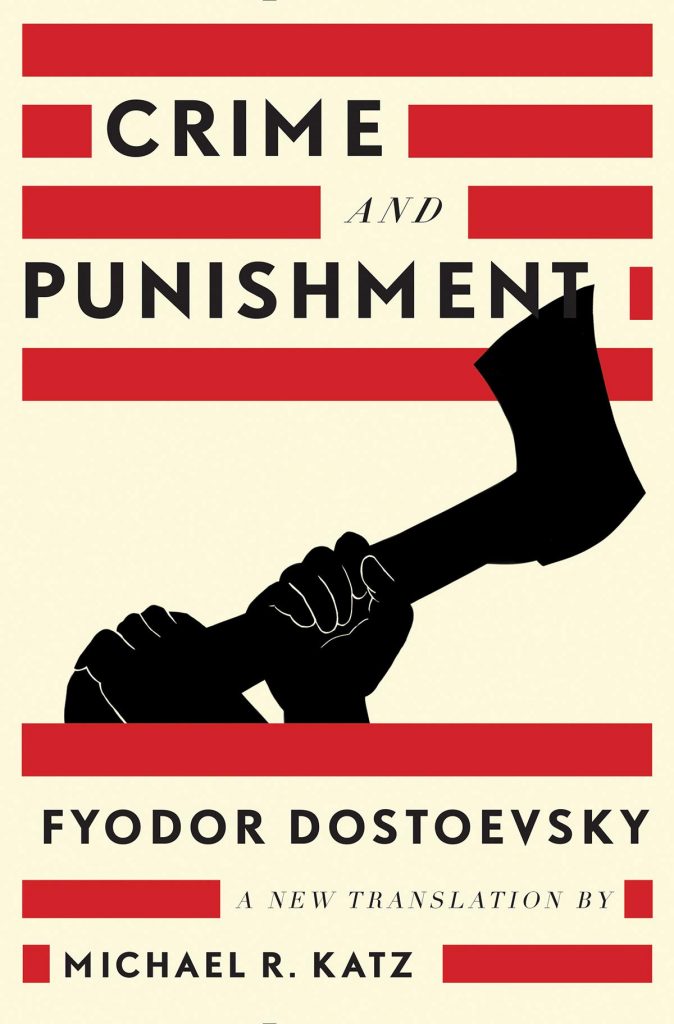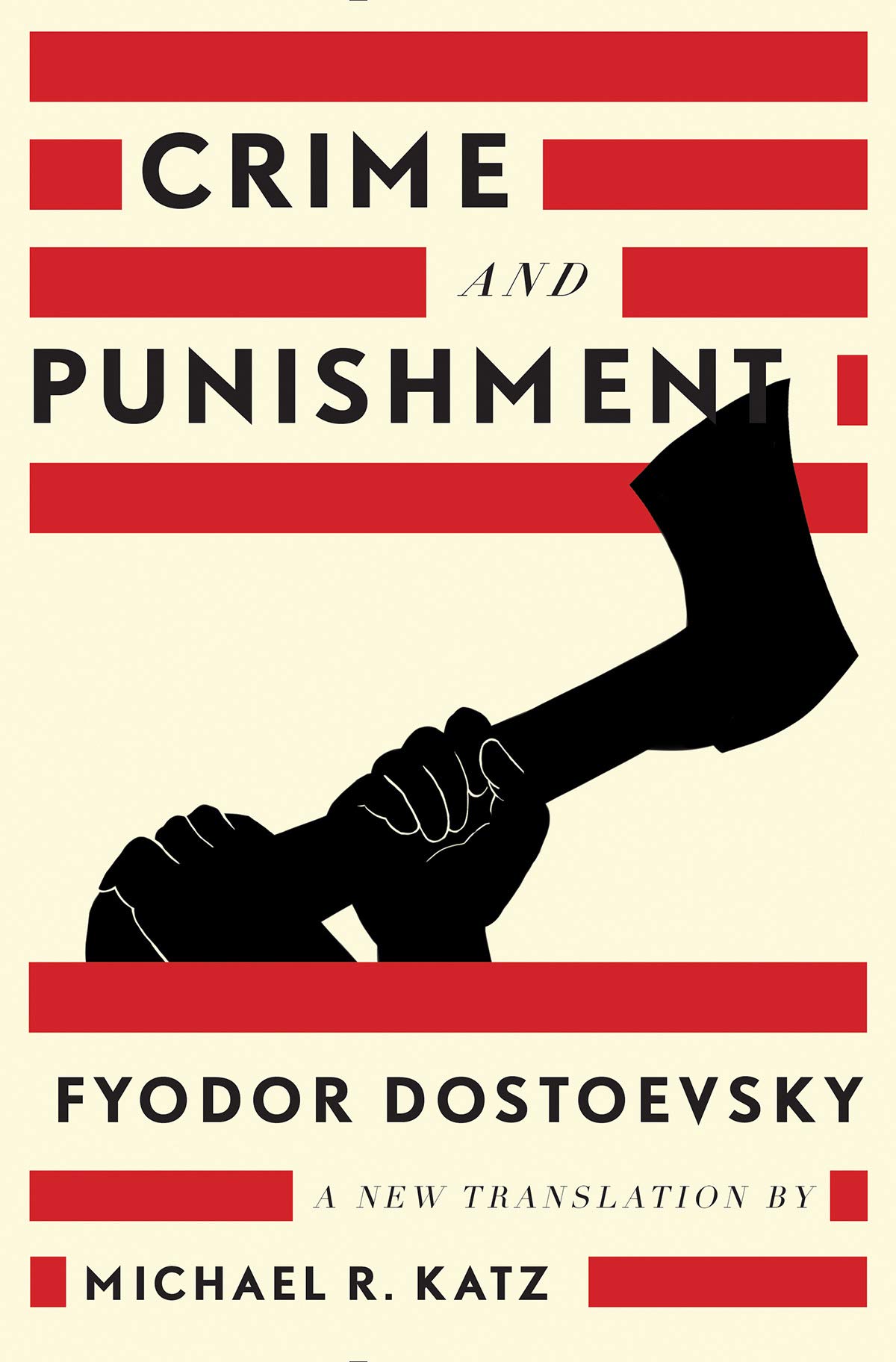
I must be an unwitting member of the slow reading movement—or at least of the long reading movement. As part of my summer reading list, I’ve been enjoying Dostoevsky’s Crime & Punishment. To my delight, I have discovered that, instead of a dry discourse from a 19th century intellectual, Dostoevsky’s novel is really a schlocky melodrama about an axe murderer who gradually goes insane. I’ve also discovered that sprawling 19th century Russian novels are easier to read in the 21st century. We have the benefit of eReaders. Our arms don’t get so tired holding the book in place. The old Russian literati must have had huge biceps.
More than half way through (Part IV, Chap. 3), we encounter an interesting aside: a proposal for a book publishing business. The protagonist, Raskolnikov, is an impoverished ex-student living in St. Petersburg. His chief supporter is fellow student, Razumihin, who earns a few roubles here and there translating European works. It is Razumihin who dreams of setting up his own publishing business.
Context is important here. Dostoevsky published Crime & Punishment in serialized form from January to December 1866, just five years after Alexander II, Czar of Russia had abolished indentured servitude, liberating 50 million Russian serfs. From our perspective, it is hard to believe that a medieval form of social organization persisted in Russia until the latter half of the 19th century. While Alexander’s legislation was a stunning move in favour of the people, it produced huge social upheaval and led to the obvious question: what next? Poor but literate characters like Razumihin answered that question with their own brand of market capitalism.
History seems to have repeated itself in Russia, for a similar situation has arisen following the collapse of Soviet Russia. However, if an entrepreneurial Russian were to establish a publishing house today, the underlying social upheaval serving as an impetus for this move would be not so much class conflict as technological change. If Dostoevsky had written Crime and Punishment in 2010, Razumihin would be talking about an internet publishing startup that would market ebooks. That would be the “new and untried” venture that would get the characters excited about fresh opportunities.
Meanwhile, established publishing houses would be part of that classist and increasingly irrelevant group who, like 19th century Russian land owners, have less and less influence on outcomes in the emerging social order. Note the problem Razumihin identifies: publishers know nothing about what they are selling. That sounds familiar in relation to the ebook market today.
Here’s a short excerpt:
Then Razumihin began to unfold his project, and he explained at length that almost all our publishers and booksellers know nothing at all of what they are selling, and for that reason they are usually bad publishers, and that any decent publications pay as a rule and give a profit, sometimes a considerable one. Razumihin had, indeed, been dreaming of setting up as a publisher. For the last two years he had been working in publishers” offices, and knew three European languages well, though he had told Raskolnikov six days before that he was “schwach” in German with an object of persuading him to take half his translation and half the payment for it. He had told a lie then, and Raskolnikov knew he was lying.
“Why, why should we let our chance slip when we have one of the chief means of success–money of our own!” cried Razumihin warmly. “Of course there will be a lot of work, but we will work, you, Avdotya Romanovna, I, Rodion. . . . You get a splendid profit on some books nowadays! And the great point of the business is that we shall know just what wants translating, and we shall be translating, publishing, learning all at once. I can be of use because I have experience. For nearly two years I’ve been scuttling about among the publishers, and now I know every detail of their business. You need not be a saint to make pots, believe me! And why, why should we let our chance slip! Why, I know—and I kept the secret–two or three books which one might get a hundred roubles simply for thinking of translating and publishing. Indeed, and I would not take five hundred for the very idea of one of them. And what do you think? If I were to tell a publisher, I dare say he’d hesitate—they are such blockheads! And as for the business side, printing, paper, selling, you trust to me, I know my way about. We’ll begin in a small way and go on to a large. In any case it will get us our living and we shall get back our capital.”
Dounia’s eyes shone.
“I like what you are saying, Dmitri Prokofitch!” she said.
“I know nothing about it, of course,” put in Pulcheria Alexandrovna, “it may be a good idea, but again God knows. It’s new and untried. Of course, we must remain here at least for a time.” She looked at Rodya.
“What do you think, brother?” said Dounia.
“I think he’s got a very good idea,” he answered. “Of course, it’s too soon to dream of a publishing firm, but we certainly might bring out five or six books and be sure of success. I know of one book myself which would be sure to go well. And as for his being able to manage it, there’s no doubt about that either. He knows the business. . . . But we can talk it over later. . . .”
